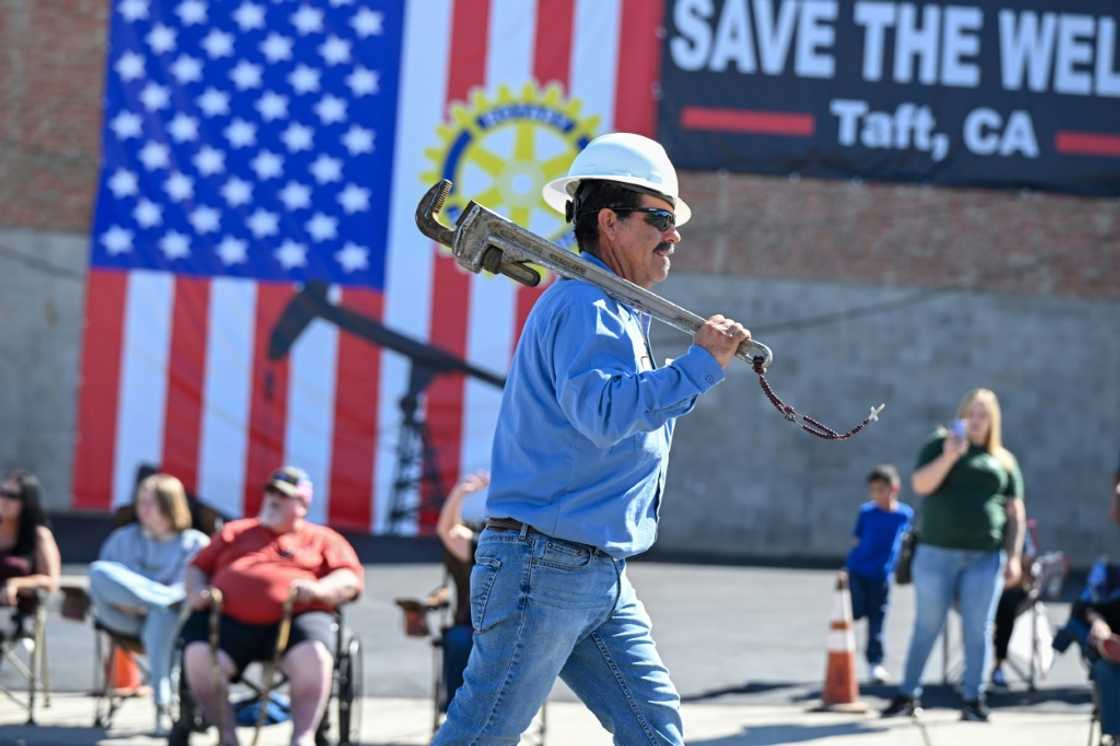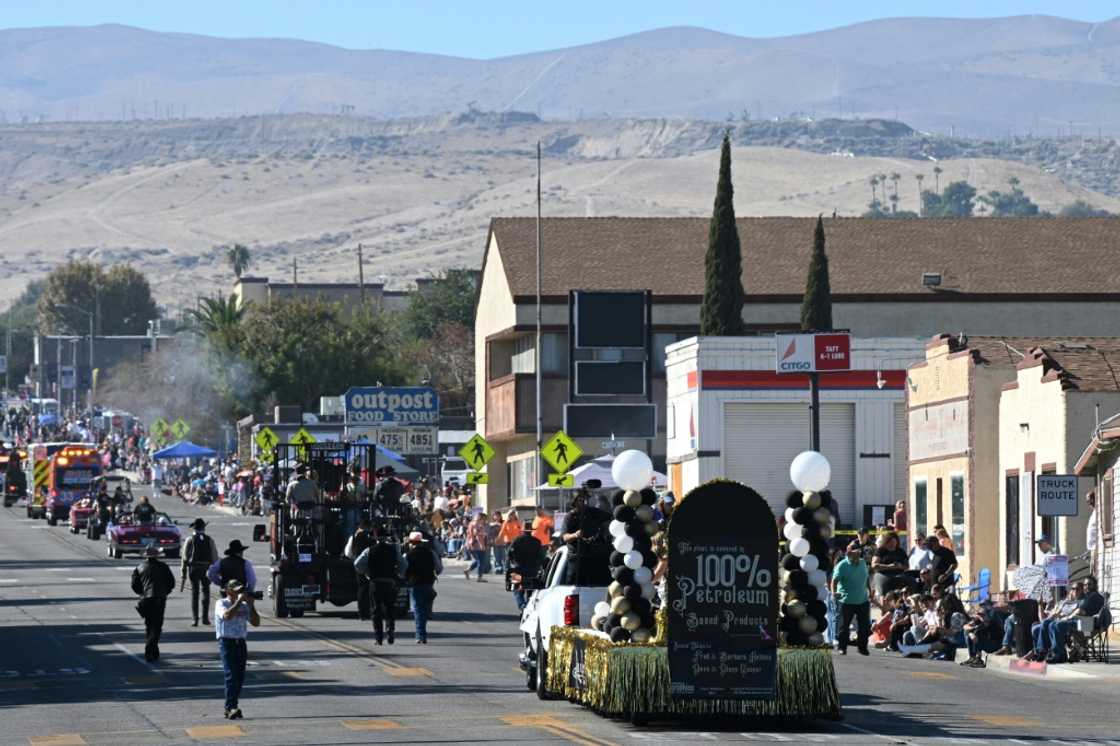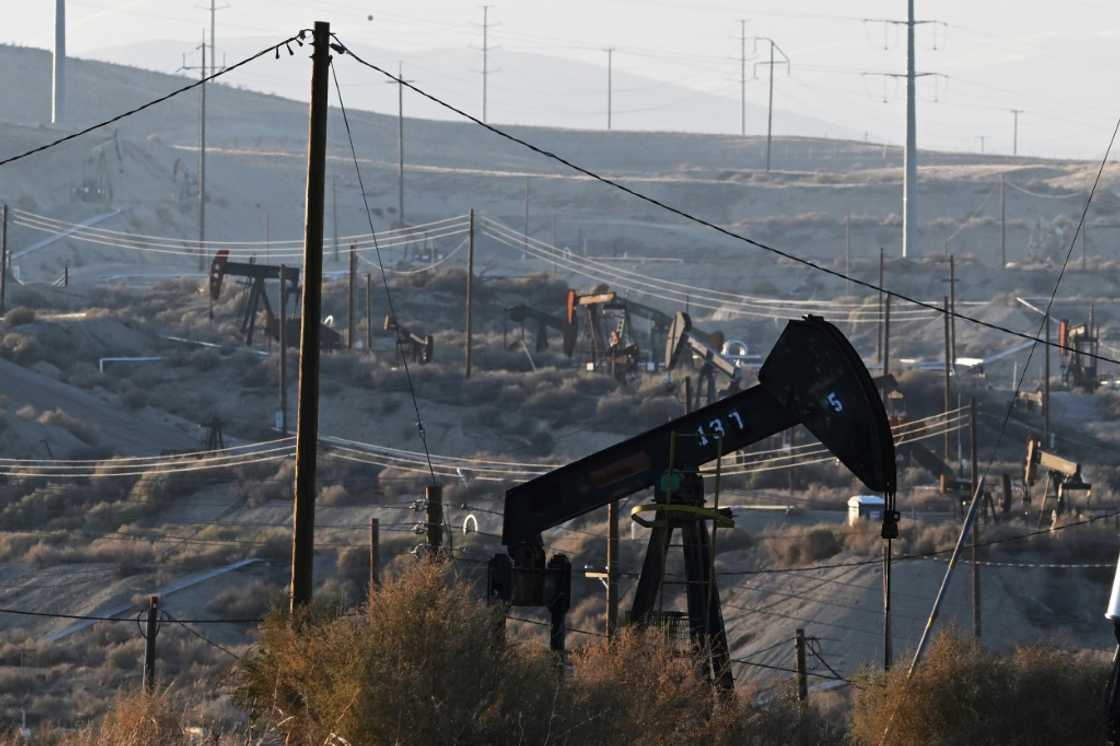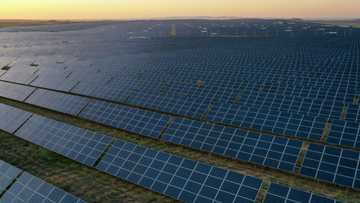California's oil capital hopes for a renaissance under Trump

Source: AFP
Every five years, the fading US town of Taft puts on a days-long "Oildorado" festival to celebrate its glory days at the center of California's black gold rush.
Thousands flock to its parade of cowboys on horseback, antique cars and floats featuring oil pumps -- a hat tip to the Wild West of yore.
This year, nine months into Donald Trump's second term, the tone has shifted from reminiscence to renaissance.
Shrugging off climate change concerns, the US president has embraced fossil fuels with a stated goal of "unleashing American energy" and removing "impediments" to domestic energy production.
Some of Taft's 7,000 residents are anticipating a comeback for the petroleum industry in California, which has pledged to abandon oil drilling by 2045 to meet its climate goals.
"I'm 100 percent satisfied with President Trump," Buddy Binkley told AFP, a minority view in a heavily Democratic state. "And as for the state of California, I think he's putting a nice pressure on them to hopefully turn around their prejudice against oil."
The 64-year-old retired maintenance supervisor with oil company Chevron sported a red cap with the words "Make Oil Great Again," a play on Trump's MAGA motto and a slogan featured on several parade floats.
"The oil industry in California is suffering due to political reasons," Binkley said. But with Trump in power, "I think it may go back the way it was."
'Great hopes'

Source: AFP
Located about 200 kilometers (120 miles) north of Los Angeles, Taft was founded in 1910 atop California's most extensive oil field.
Today, Kern County -- where Taft is located -- contributes more than 70 percent of California's total oil production. Its rural landscape is dotted with thousands of oil pumps.
A giant wooden oil derrick serves as a central landmark in Taft, which finances its schools, fire department and police force with oil revenues.
Festival-goers can compete for the title of best welder, crane operator or backhoe loader -- or be crowned the "Oildorado Queen."
Despite its pageantry and pride, the town is in decline.
California oil production has been waning since the 1980s and has more recently been pinched by the push for cleaner forms of energy. Some of the town's residents have moved to Texas, where drilling is less regulated.
Many in Taft are delighted that Trump has pulled out of the Paris climate accord and removed obstacles to drilling on federal lands while handing out billions in tax breaks for the oil industry.
"I have great hopes," said Dave Noerr, Taft's mayor. "We have all the raw materials. We had the wrong direction, now we have leadership that is going to unleash the possibilities."
'Stuck in the past'

Source: AFP
Trump's administration has slashed federal funding for renewable energy and climate science, and he wants to strip the Environmental Protection Agency of its power to regulate greenhouse gas emissions.
Like the president, Noerr is a skeptic of "quote, unquote, climate change."
"We need to question the narrative, and we need to update those things with the existing science," he said.
Yet California is increasingly vulnerable to the extreme weather produced by climate change. Earlier this year, 31 people in the Los Angeles area died in fires spread by hurricane-force gusts of 160 km/h (100 miles per hour).
"If everyone around the world behaved like the US, the world would be on pace for four degrees centigrade of global warming by 2100," said Paasha Mahdavi, a political scientist specializing in environmental policy at the University of California, Santa Barbara.
Agriculture remains the top employer in Kern County, and "would be dramatically affected by increased incidence of drought, and unprecedented heat waves that are already hitting the region," he added.
That worries Taylor Pritchett, a 31-year-old dog groomer in Taft who frets about air pollution in the area.
"If I were to have a child, I wouldn't want to raise them in Kern County," she said. "I would like to go somewhere cleaner."
She believes that "we need to get away from fossil fuels." But in Taft, she acknowledged, "we're stuck in the past a little bit, you know, like, very unwilling to change."
Source: AFP






